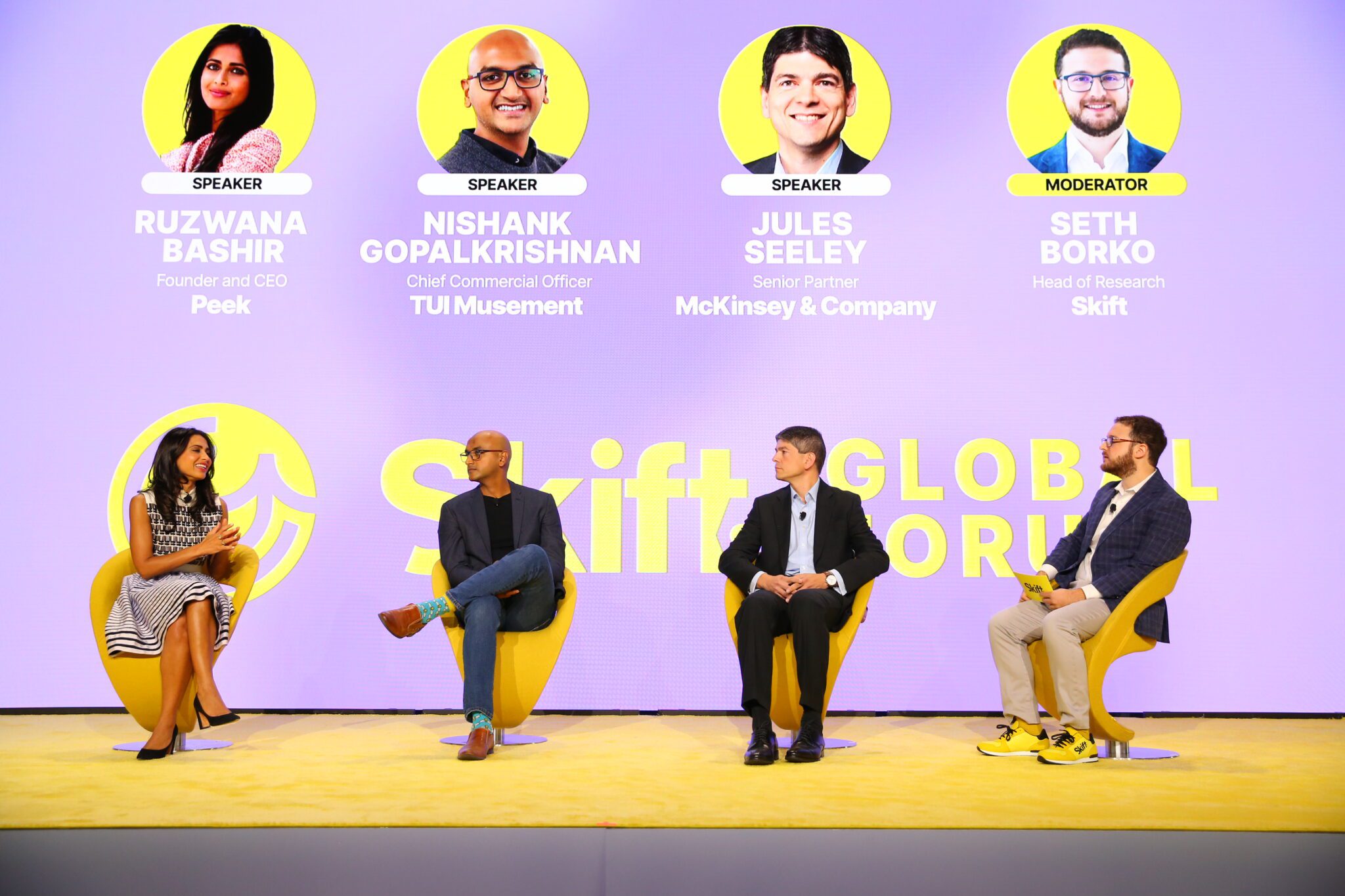Skift Take
The demand for experiences isn’t showing any sign of slowing down, but travel companies are still figuring out how to capture it.
The desire to travel for experiences is expected to keep growing, but itâs not without challenges. Leaders in providing travel experiences spoke at the Skift Global Forum in New York Wednesday: Ruzwana Bashir, founder and CEO of Peek; Jules Seeley, senior partner at McKinsey & Company; and Nishank Gopalkrishnan, chief commercial officer of TUI Musement.Â
Super Growth
Consumers are looking at the things that feel unique or special â the social media moments â and that is an opportunity for entrepreneurs, hotels, airlines to tap into, Bashir said.
âWith experiences and people traveling, I think we have seen in the last decade a big change in how people are looking for experiences,â Bashir said. âSocial media has a big role today⦠there’s a drive towards having some of these memorable moments that people care about. The spend is up.â
Experiences currently generate over $1 billion in revenue for the travel industry. And they’re becoming more and more important when customers make decisions about travel.
That has also meant an overwhelming amount of information to dig through. The number of Eiffel Tower tours has gone from 250 in 2019 to 750 currently, Gopalkrishnan said. âHow do you navigate through that?â
TUI offers retail advisors who help customers make their travel decisions. âOver the last five years, we’ve seen a big shift in terms of people coming into these stores and saying, hey, I want to go to a particular destination because I want to do something there,â Gopalkrishnan said.
Thematic Travel
Taylor Swift has undoubtedly moved economies with her Eras tour. That kind of thematic travel â for big concerts or sporting events â is adding to sales, with the average person traveling for a major sporting event or concert spending over $1,000 on hotels, dining, and airlines.Â
But âitâs quite difficult to live off of that,â Gopalkrishnan said. The events arenât necessarily duplicated and they have a limited life span. Case in point: the Eras tour ends in December. They are also different from regular travel in that usually youâll book the concert or sporting event first, then airline and hotel later.
With non-thematic experiences, those are often booked within the last seven days before travel or even on-site with the hotel playing a key role.
Still, itâs an opportunity for airlines and hotels to offer experiences while customers are in the booking process, but they donât necessarily have the information they need to do so.
âIt’s maybe not only a value piece, it’s that they want to be part of that customer experience,â Gopalkrishnan said. âThe main reason they want to be part of the experiences conversation is because those are the memories you take back as travelers.â
In fact, an analysis of Nordic holiday packages found that those with experiences included had between 15 and 20 points NPS score above those without.
Scaling Experiences
Experiences as an industry is fragmented and dominated by millions of small operators around the world, who arenât necessarily interested in scaling.
Spending is up 65% on experiences from before the pandemic, with younger travelers willing to splurge, Bashir said. Thereâs a lag, however, with the booking of flights and hotels happening 30 to 60 days in advance, whereas experiences tend to be a last-minute decision. Thereâs a disconnect but also an opportunity, Gopalkrishnan said.
âFor the classic travel operators, for airlines and hotels, this is an area of particular value because it’s now much more part of the overall booking choice,â Seeley said. The question is how to tie it all together. âWhat role can they play out experiences or adjust them in the moment of the trip? It’s still very much a sort of offline part of the travel journey.â
Artificial intelligence can help accelerate opportunities with marketplaces able to do more as the technology evolves, Bashir said. Only half of experiences bookings happen online, in part because there are so many small companies involved.
âTechnology and AI can help the customer navigate something that’s much more sort of subjective,â Seeley said. â The opportunity, through platforms and intermediaries to provide some level of curation and personalizing and tailoring, I think that’s got disproportionate value here.â

